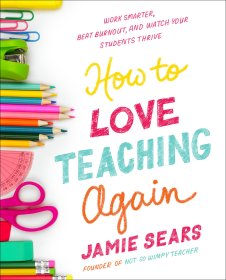
【预订】Hero of the Empire
书籍内容简介可联系客服查阅,查书找书开票同样可以联系客服
¥ 108 ¥ 108 九五品
库存2件
广东广州
认证卖家担保交易快速发货售后保障
作者Candice Millard
出版社Knopf Doubleday Publishing Group
ISBN9780307948786
出版时间2017-05
装帧平装
定价108元
货号YB-86020
上书时间2024-06-28
- 最新上架
商品详情
- 品相描述:九五品
- 商品描述
-
商品简介
From the bestselling author of Destiny of the Republic, this thrilling biographical account of the life and legacy of Wintson Churchill is a "nail-biter and top-notch character study rolled into one" (The New York Times).
At the age of twenty-four, Winston Churchill was utterly convinced it was his destiny to become prime minister of England. He arrived in South Africa in 1899, valet and crates of vintage wine in tow, to cover the brutal colonial war the British were fighting with Boer rebels and jumpstart his political career. But just two weeks later, Churchill was taken prisoner. Remarkably, he pulled off a daring escape—traversing hundreds of miles of enemy territory, alone, with nothing but a crumpled wad of cash, four slabs of chocolate, and his wits to guide him.
Bestselling author Candice Millard spins an epic story of bravery, savagery, and chance encounters with a cast of historical characters—including Rudyard Kipling, Lord Kitchener, and Mohandas Gandhi—with whom Churchill would later share the world stage. But Hero of the Empire is more than an extraordinary adventure story, for the lessons Churchill took from the Boer War would profoundly affect twentieth century history.
Look for Candice Millard’s latest book, River of the Gods.
这本关于温特森·丘吉尔的生平和遗产的激动人心的传记出自《共和国的命运》的畅销书作者之手,是“将扣人心弦的一流人物研究融为一体”(< i>纽约时报)。
二十四岁时,温斯顿·丘吉尔完全相信成为英国首相是他的命运。 1899 年,他带着贴身男仆和成箱的陈年葡萄酒抵达南非,报道英国与布尔叛军进行的残酷殖民战争,并开启了他的政治生涯。但仅仅两周后,丘吉尔就被俘虏了。值得注意的是,他完成了一次大胆的逃跑——独自穿越数百英里的敌方领土,除了一叠皱巴巴的现金、四块巧克力和指引他的智慧之外什么都没有。
畅销书作家坎迪斯·米勒德讲述了一个关于勇敢、野蛮和与一系列历史人物偶遇的史诗故事——包括拉迪亚德·吉卜林、基奇纳勋爵和莫罕达斯·甘地——丘吉尔后来与他们一起登上了世界舞台。但帝国英雄不仅仅是一个非凡的冒险故事,因为丘吉尔从布尔战争中吸取的教训将深刻影响二十世纪的历史。
寻找坎迪斯·米勒德的故事的最新书,众神之河。
作者简介
CANDICE MILLARD is the author of the New York Times bestsellers The River of Doubt and Destiny of the Republic. She lives in Kansas City with her husband and three children.
精彩内容
Prologue
Crouching in darkness outside the prison fence in wartime southern Africa, Winston Churchill could still hear the voices of the guards on the other side. Seizing his chance an hour earlier, the twenty-five-year-old had scaled the high, corrugated-iron paling that enclosed the prison yard. But now he was trapped in a new dilemma. He could not remain where he was. At any moment, he could be discovered and shot by the guards or by the soldiers who patrolled the dark, surrounding streets of Pretoria, the capital of the enemy Boer republic. Yet neither could he run. His hopes for survival depended on two other prisoners, who were still inside the wall. In the long minutes since he had dropped down into the darkness, they had not appeared.
From the moment he had been taken as a prisoner of war, Churchill had dreamed of reclaiming his freedom, hatching scheme after scheme, each more elaborate than the last. In the end, however, the plan that had actually brought him over the fence was not his own. The two other English prisoners had plotted the escape, and agreed only with great reluctance to bring him along. They also carried the provisions that were supposed to sustain all three of them as they tried to cross nearly three hundred miles of enemy territory. Unable even to climb back into his hated captivity, Churchill found himself alone, hiding in the low, ragged shrubs that lined the fence, with no idea what to do next.
Although he was still a very young man, Churchill was no stranger to situations of great personal peril. He had already taken part in four wars on three different continents, and had come close to death in each one. He had felt bullets whistling by his head in Cuba, seen friends hacked to death in British India, been separated from his regiment in the deserts of the Sudan and, just a month earlier, in November 1899, at the start of the Boer War, led the resistance against a devastating attack on an armored train. Several men had died in that attack, blown to pieces by shells and a deafening barrage of bullets, many more had been horribly wounded, and Churchill had barely escaped with his life. To his fury and deep frustration, however, he had not eluded capture. He, along with dozens of British officers and soldiers, had been taken prisoner by the Boers—the tough, largely Dutch-speaking settlers who had been living in southern Africa for centuries and were not about to let the British Empire take their land without a fight.
When the Boers had realized that they had captured the son of Lord Randolph Churchill, a former Chancellor of the Exchequer and a member of the highest ranks of the British aristocracy, they had been thrilled. Churchill had been quickly transported to a POW camp in Pretoria, the Boer capital, where he had been imprisoned with about a hundred other men. Since that day, he had been able to think of nothing but escape, and returning to the war.
The Boer War had turned out to be far more difficult and more devastating than the amusing colonial war the British had expected. Their army, one of the most admired and feared fighting forces in the world, was astonished to find itself struggling to hold its own against a little-known republic on a continent that most Europeans considered to be theirs for the taking. Already, the British had learned more from this war than almost any other. Slowly, they were realizing that they had entered a new age of warfare. The days of gallant young soldiers wearing bright red coats had suddenly disappeared, leaving the vaunted British army to face an invisible enemy with weapons so powerful they could wreak carnage without ever getting close enough to look their victims in the eye.
Long before it was over, the war would also change the empire in another, equally indelible way: It would bring to the attention of a rapt British public a young man named Winston Churchill. Although he had tried again and again, in war after war, to win glory, Churchill had returned home every time without the medals that mattered, no more distinguished or famous than he had been when he set out. The Boer War, he believed, was his best chance to change that, to prove that he was not just the son of a famous man. He was special, even extraordinary, and he was meant not just to fight for his country but one day lead it. Although he believed this without question, he still had to convince everyone else, something he would never be able to do from a POW camp in Pretoria.
When Churchill had scrambled over the prison fence, seizing his chance after a nearby guard had turned his back, he felt elated. Now, as he kneeled in the shrubs just outside, waiting helplessly for the other men, his desperation mounted with each passing minute. Finally, he heard a British voice. Churchill realized with a surge of relief that it was one of his co-conspirators. “It’s all up,” the man whispered. The guard was suspicious, watching their every move. They could not get out. “Can you get back in?” the other prisoner asked.
Both men knew the answer. As they stood on opposite sides of the fence, one still in captivity, the other achingly close to freedom, it was painfully apparent that Churchill could not undo what had already been done. It would have been impossible for him to climb back into the prison enclosure without being caught, and the punishment for his escape would have been immediate and possibly fatal.
In all the time he had spent thinking about his escape since arriving in Pretoria, the one scenario that Churchill had not envisioned was crossing enemy territory alone without companions or provisions of any kind. He didn’t have a weapon, a map, a compass, or, aside from a few bars of chocolate in his pocket, any food. He didn’t speak the language, either that of the Boers or that of the Africans. Beyond the vaguest of outlines, he didn’t even have a plan—just the unshakable conviction that he was destined for greatness.
Part One
Pushful, the Younger
Chapter 1 - Death by Inches
From earliest childhood, Churchill had been fascinated by war, and dreamed of gallantry in battle. “There is no ambition I cherish so keenly,” he had confided to his younger brother, Jack, “as to gain a reputation for personal courage.”
As a boy, he had collected a miniature army of fifteen hundred toy soldiers and spent hours sending them into combat. “From very early youth I had brooded about soldiers and war, and often I had imagined in dreams and day-dreams the sensations attendant upon being for the first time under fire,” he wrote. “It seemed to my youthful mind that it must be a thrilling and immense experience to hear the whistle of bullets all around and to play at hazard from moment to moment with death and wounds.” At Sandhurst, the Royal Military College, from which he had graduated in 1894, Churchill had loved nothing more than to participate in war games, regretting only “that it all had to be make-believe.”
To be an aristocratic Englishman in the late nineteenth century meant being surrounded not merely by the lavish benefits of imperial power but by its equally vast responsibilities. Covering more than a fifth of the world’s land surface, the British Empire had come to rule about a quarter of the human race—more than 450 million people living on every continent and on the islands of every ocean. It was the largest empire ever known, easily outranking the once mighty Spanish Empire, which had been the original object of the awe-filled description “the empire on which the sun never sets.&rd
— 没有更多了 —












以下为对购买帮助不大的评价